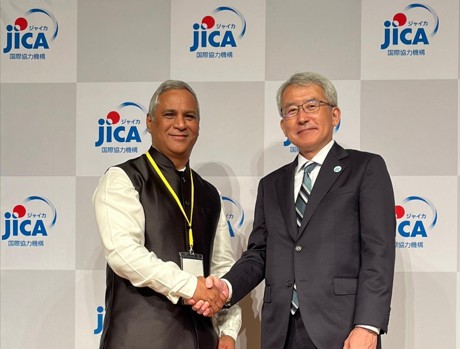

The Japan International Cooperation Agency (JICA) has committed USD 40
million to Aavishkaar Capital’s Global Supply Chain Support Fund, in a move
aimed at accelerating inclusive and sustainable growth across Africa and Asia.
The announcement was made by Japanese Prime
Minister Shigeru Ishiba during the Economic
Partnership in Indian Ocean–Africa Forum, held alongside the TICAD 9
(Tokyo International Conference on African Development) in Yokohama, Japan.
The Global Supply Chain Support Fund, jointly
set up with Germany’s KfW development bank, is managed by India-headquartered
Aavishkaar Capital.
The fund provides credit to private corporates and SMEs in sectors such as
agriculture, food processing, and manufacturing, businesses with significant
climate, social, and community impact.
With JICA’s backing, Aavishkaar Capital aims to
expand its footprint beyond India into Africa and other emerging Asian markets,
supporting enterprises that form critical links in international supply chains.
The fund has already made eight
investments across Asia and Africa.
Mikio Hataeda, JICA’s Senior Vice President,
said the partnership builds on a decade-long relationship with Aavishkaar:
“By investing in the fund and entering a new
chapter of collaboration with the Aavishkaar Group, we hope to elevate the
well-established India-Japan partnership and further strengthen our commitment
to impact investment in Africa and Asia.”
Vineet Rai, Founder of Aavishkaar Group and
Managing Partner of Aavishkaar Capital, welcomed JICA’s entry, terming it a
“strategic investment” that reinforces Indo-Japan cooperation.
“Together, we are committed to advancing
shared values of sustainable growth and transformative opportunities for SMEs
across Africa and Asia,” Rai said.
Ashish Patel, Managing Partner-Credit at
Aavishkaar Capital, noted that JICA’s involvement would help address the debt
funding gap faced by SMEs.
“Africa plays a crucial role in the global
supply chain, and JICA’s participation strengthens our mission to support the
growth of ambitious enterprises in overlooked yet essential sectors,” Patel
said.
The $40 million injection is expected to
catalyze job creation, climate action, and community empowerment, further
embedding Africa and Asia into the global supply chain.












